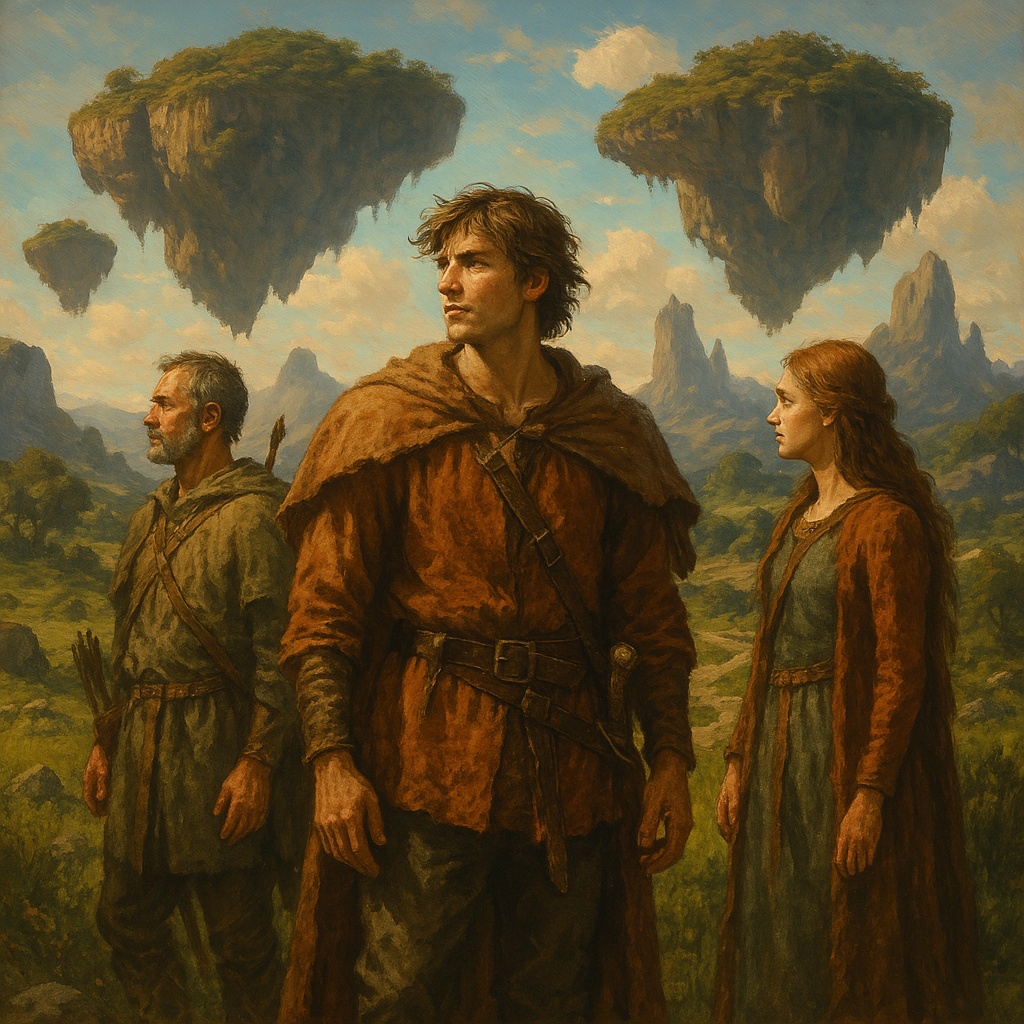Humans
An Anthropological Report on the Humans of Eothea By Glarald Zylleth, Ethnographer of the Free Realms
Among the multitudinous peoples of Eothea, none possess so pronounced a capacity for transformation, aspiration, and contradiction as the humans. As the last sentient race wrought by the old gods, their relatively recent emergence into the annals of Eothean history has proven to be not a hindrance, but rather a springboard into unprecedented influence, dissemination, and cultural diffusion.
Origins and Historical Trajectory
Humanity's genesis, as recounted in both sacred texts and academic conjecture, is deeply entwined with the cataclysmic epoch known as the Divine Civil War. Whether their birth was the cause or consequence of divine discord remains debated among scholars, yet their ascent in the aftermath of celestial collapse is irrefutable. From fractured tribal lineages, humans established monarchies, republics, and guild-states, all the while redefining the cultural, martial, and magical parameters of civilization.
Figures such as King Aldric the First, unifier of early human tribes; Queen Isolde the Wise, peacemaker and architect of diplomacy; and Archmage Thalorin the Arcane, progenitor of the human magical tradition, exemplify the protean potential of the species. Equally emblematic are the adventurers—Adria Windrunner and Marcus Stormblade—whose exploratory and martial prowess expanded human reach to the most remote peripheries of Eothea.
Cultural Diversity and Social Fabric
The anthropological character of humanity is best described as variegated. Human culture resists uniform definition, reflecting regional idiosyncrasies, historical fractures, and syncretic evolutions. In agrarian villages, tradition and ancestral rites anchor daily life; in cosmopolitan cities, innovation and pluralism dominate. Regardless of setting, certain elements recur: a reverence for family and ancestry; a proclivity for celebration through festival and rite; and a commitment to institutions of learning, justice, and governance.
Humans have erected sprawling academies, houses of healing, and temples to myriad deities—both major and minor—demonstrating a flexibility in theological thought rarely seen in other species. Their culture prizes narrative, be it through song, tale, chronicle, or monument, resulting in a vast corpus of literature and oral history.
Naming, Appearance, and Dress
Human naming conventions are similarly diverse, shaped by linguistic, occupational, and familial influences. Patronymics, honorifics, and professional surnames are prevalent, with variations depending on region and status. Attire is dictated by climate, class, and custom. While noble courts showcase resplendent fabrics and bejeweled regalia, the common folk favor durable, functional clothing suited to labor and travel. Magical adornments and symbolic tokens are also prevalent among adventurers and the learned.
Rites, Traditions, and Social Ideals
Human customs are marked by their solemnity and celebration alike. From birth rites and baptisms to marriage ceremonies and funerary vigils, rituals serve both the spiritual and social functions of affirmation and cohesion. Coming-of-age ceremonies often involve symbolic acts of labor, trial, or pilgrimage. Death, in contrast, is met with mourning and remembrance, as exemplified by eulogies, tomb offerings, and annual days of ancestral honor.
Gender and courtship ideals, while historically subject to rigid binaries, have increasingly become more inclusive and fluid in modern contexts. Respect, sincerity, and mutual consent form the ethical bedrock of romantic engagement, while enduring relationships are predicated on communication, trust, and shared vision. Familial structures may vary, but the ideal of cooperative partnership remains central.
Technological and Magical Development
In terms of innovation, the human contribution to arcane sciences, metallurgy, navigation, and literature cannot be overstated. From the construction of Aetherial engines to the codification of astrological charts, humans have demonstrated relentless curiosity. Their cities hum with the mechanisms of invention, while their libraries safeguard the wisdom of countless ages. In fields such as medicine, humans have synthesized alchemical knowledge with empirical study to create techniques both advanced and widely disseminated.
Etiquette, Ethics, and Daily Conduct
Etiquette among humans varies, yet overarching values such as respect for elders, courteous address, punctuality, and hospitality are nearly universal. Social interactions are framed by codes of honor and civility. Deceit, disrespect, or intrusion upon privacy is frowned upon, while gratitude, honesty, and generosity are held in high regard. Dining etiquette, gift-giving, and ritualized greetings further structure interpersonal behavior.
Artistic and Mythological Expression
Human artistic expression is prolific and multifaceted. Visual arts range from monumental statuary to miniature illuminations. Music, theater, and dance abound, expressing both joyous and tragic elements of the human condition. Myths such as the Lost City of Eldoria and the Legend of the Starborn capture the dual human obsessions with mystery and destiny. Likewise, the recurring motif of the “Chosen One” underscores humanity’s belief in transformative potential and personal agency.
Concluding Observations
The human presence in Eothea is not defined by a singular identity, but by the vast multiplicity of paths taken, dreams pursued, and stories told. From the embers of divine downfall to the heights of modern civilization, humans have demonstrated a remarkable elasticity of spirit. They are builders, destroyers, poets, and pioneers. It is their contradictions that make them endlessly fascinating to the scholar, their perseverance that makes them indispensable to the world.
—Glarald Zylleth, Royal Anthropologist of the Truran Academy of Civilized Lore



Comments